Mining & Metals: Ethics & Compliance
From critical minerals in Central Asia to illicit gold flows in Latin America, mining is under greater scrutiny than ever. For investors and operators, the challenges extend beyond the ground: ethics, compliance, and governance risks now sit at the centre of value creation.
This newsletter highlights five developments our clients are watching closely — and how proactive intelligence can help leaders manage exposure while seizing opportunity...
Kazakhstan’s Critical Minerals Ambitions;
Europe’s Nuclear Revival;
Organised Crime in Latin America’s Gold Trade;
Saudi Mining Licences; and
Tanzanian Local Partner Laws in Mining
Kazakhstan’s Critical Minerals Ambitions in the Global Energy Transition
Kazakhstan is positioning itself as a key player in the global critical minerals supply chain, particularly in support of the electric vehicle industry. Amid tensions between the West and the People’s Republic of China (PRC) — which currently produces 60% of all critical minerals — Western governments are turning to Central Asia to diversify supply.
Kazakhstan ranks sixth globally in mineral reserves, with substantial deposits of copper, lithium, tungsten, tantalum and rare earth elements (REEs). It produces 17 of the US’s designated critical minerals and 19 of the EU’s. The country is also the world’s largest uranium producer, accounting for 38% of global supply in 2024.
To attract foreign investment, Kazakhstan’s government has introduced reforms to its subsoil codes, improved geological data transparency, streamlined licensing, and issued new licences to encourage exploration. Between 2018 and 2024, over USD 1 billion flowed into geological exploration. In 2025, France and the UK deepened talks with Kazakh counterparts, while the European Bank for Reconstruction and Development identified critical raw materials as a regional investment priority.
As geopolitical competition reshapes mineral supply chains, Kazakhstan’s role is becoming increasingly strategic for Western energy and defence industries. Wallbrook supports investors and operators with due diligence and geopolitical risk insights across Central Asia’s fast-moving critical minerals landscape.
Europe’s Nuclear Revival: The Hidden Risks in Uranium Supply
As Europe reembraces nuclear energy to meet climate and energy security goals, its uranium supply chain faces heightened integrity risks. Most of the continent’s uranium comes from geopolitically sensitive regions, such as Niger and Kazakhstan, where governance is weak and transparency lacking, exposing operators to corruption, sanctions and human rights violations.
A stark reminder came last December, when French nuclear power group Areva agreed to pay a EUR 4.8 million fine to settle a French bribery investigation involving uranium mining rights in Mongolia. The case revealed payments routed through intermediaries to Mongolian public officials, allegedly to secure exploration licences. As part of the settlement, Orano Mining, which inherited Areva’s mining assets, committed to a multi-year compliance program under the supervision of France’s Anti-Corruption Agency.
The Areva case highlights the growing enforcement appetite among European regulators, especially under frameworks like France’s Sapin II Law and the EU’s proposed Anti-Corruption Directive. It also reinforces the need for extractive companies to conduct robust, ongoing due diligence, especially when engaging third parties in high-risk jurisdictions or government-facing roles. Our team helps clients map integrity risks in sensitive supply chains, from uranium to other strategic commodities, ensuring compliance and resilience.
Golden Façade: Organised Crime’s Grip on Latin America’s Gold Trade
Latin America’s mining sector is facing deepening involvement from organised crime groups in the extraction and trade of gold and other precious metals. Once focused on narcotics, cartels and criminal networks are now exploiting the high value and low traceability of minerals to generate billions in illicit revenue. In some regions, illegal gold mining now rivals drug trafficking in profitability.
These operations are violent, environmentally destructive, and embedded in local economies. The real danger lies in opacity: illegally mined gold often enters legitimate supply chains, reaching refineries and vaults — even those certified by international bullion markets. Investigations have shown illicit gold entering the US financial system through shell companies, false documentation, and real estate laundering.
The implications are serious. Major banks and institutions could face reputational and regulatory risks if holdings are traced back to illicit sources. With US sanctions intensifying against Latin American criminal networks, scrutiny of gold’s origins will only rise.
Beyond gold, organised crime’s growing footprint fuels corruption and instability across the region. For legitimate operators and investors, robust due diligence on counterparties in Latin America is no longer optional — it is essential. Wallbrook provides actionable intelligence to identify exposure to illicit trade, safeguard reputation, and strengthen counterpart due diligence in Latin America.
Saudi Mining Licences: Why the Real Risks Begin After the Award
Saudi Arabia has steadily opened its mining sector since 2020, when a new Mining Investment Law came into force. The Ministry of Industry and Mineral Resources launched its first competitive auctions in 2023, and by 2024–2025 had expanded to offer larger “exploration belts” rather than single deposits. Another round is scheduled for late 2025, with awards expected in early 2026.
Much of the coverage has focused on the scale of deposits and the international names entering the sector. Less visible — but often more challenging — is what comes after the bidding: turning an awarded licence into an operating project under strict “use-it-or-lose-it” timelines. Delays often arise from securing land access, completing environmental and heritage assessments, sourcing water, and handing over data. Missed deadlines can lead to penalties or even cancellation.
Licences can be held through a wholly owned Saudi subsidiary, but most bidders form joint ventures with local partners to meet Saudi content requirements, share capital costs, and access domestic networks. This is where risks frequently emerge. Questions around who really owns and funds the local partner, opaque nominee arrangements, and related-party contracts can undermine governance. Performance bonds may be drained if governance is weak, and inconsistencies between records filed with regulators and those maintained internally can trigger scrutiny. Since 2025, new investment rules have also demanded greater transparency of ownership and demonstrable control by the licensed entity, raising the stakes for compliance.
In short, winning the licence is only step one. The real test lies in building robust governance into joint ventures, maintaining auditable records, and mapping permitting and land-access timelines early — with contingencies built in — to ensure projects deliver on time and on record once the clock starts ticking.
Wallbrook advises investors and operators on joint-venture governance, ownership transparency, and permitting risks in Saudi Arabia, helping projects succeed beyond the licence award.
Tanzania Tightens Local Partner Rules in Mining
Tanzania has introduced new regulations increasing obligations for international mining companies. The amendment, published in September 2025, requires foreign operators to partner with 100% Tanzanian-owned businesses, with local partners holding at least a 20% stake in any proposed joint venture. The framework also imposes employment targets: board positions must be 50% Tanzanian, while “skilled” roles must be 95% locally filled.
This development reflects a wider regional trend in Sub-Saharan Africa, where governments are using resource nationalism to secure greater domestic benefit from mineral wealth. Rising political pressures and nationalist sentiment are fuelling demands for more local value capture, including limits on raw material exports and an increased push for domestic processing.
For international operators, success will depend on early engagement with authorities, careful vetting of prospective partners, and a nuanced understanding of both regulatory requirements and community expectations. Without this, companies risk regulatory friction, reputational damage, and possible licence challenges.
Wallbrook helps mining investors and operators assess local partner integrity, navigate shifting regulatory landscapes, and engage effectively with stakeholders in Sub-Saharan Africa.
In Closing
Mining and metals are central to the global energy transition — but the sector is increasingly exposed to political, regulatory, and integrity risks. Wallbrook’s business intelligence practice supports investors, operators, and partners in navigating these challenges with clarity and confidence.
For more insights or to discuss how we can support your projects, please get in touch…

